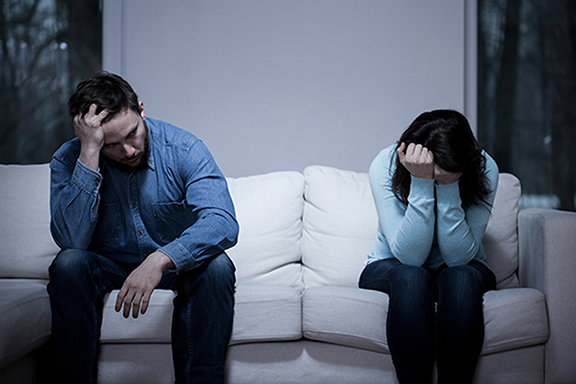
By Crystal Hiser, LCPC, LMFT, CSAT, CMAT, Agape Counseling
While there has been much publicity surrounding the term “sexual addiction” and the types of behaviors this entails, little has been reported in the media about the people who are in a relationship with a sex addict. There is a lack of coverage about those who are impacted by sexual addicts, their experiences, their needs, and their stories.
Sexual addiction refers to people who continue to participate in sexual activities even though the activity results in serious negative consequences for themselves or their families. Examples of behaviors include chronic affairs, Internet pornography, and exhibitionism to name a few. Like other addictions — drugs, alcohol, gambling — the person wants to stop the behavior, but is unable to do so on their own.
Partners of sex addicts experience some feelings similar to that of partners of other addicts. They are familiar with secrecy, doubting oneself and one’s sanity, and living with the consequences of the addict’s behavior. However, being a partner of a sex addict entails so much more. There may be significant feelings of shame, decreased self-esteem, and questioning of oneself as to whether they are responsible for their partner’s sexual acting-out behavior. Well-intentioned friends and relatives may communicate faulty messages to the partner such as “you should just have more sex with him to keep him from straying,” or minimize the behavior by saying “everyone looks at porn, why don’t you just join them.” Some religious friends may even misquote the Bible to point out how it is a “duty to have sex with your spouse.” Even some professional therapists are uneducated to the nuances related to sexual addiction. They may encourage the sexual acting-out behavior and, as a result, lead the partner to experience additional shame and trauma.
Partners may be reluctant to share their experiences and pain due to fear of what others will say to them and about them to others. People can be quick to weigh in on the life decisions to be made and give unsolicited advice of what they should or shouldn’t do with their relationship (i.e., “you have to leave her,” or “you can’t get a divorce, you have to stay and work it out”). While these suggestions are not intended to hurt the recipient, they often leave the partners feeling like they have few choices available to them and wishing they had kept their mouths shut.
Research indicates that many partners of sex addicts experience traumatic symptoms following the discovery of their significant other’s sexual behavior. One study found that up to 70 percent of wives of sex addicts met the criteria for Post Traumatic Stress Disorder. Common symptoms include distressing thoughts and images about the addict’s behavior, re-experiencing the moment that they found out about the acting out behavior, increased emotional reactivity, and difficulty concentrating. This illustrates the importance of finding safe, educated individuals to support partners through their healing.
Certified Sexual Addiction Therapists (CSAT) are trained extensively to work with not only sex addicts, but also partners traumatized by sexual addiction. CSAT’s are familiar with treatment needs of partners, such as learning how to cope with triggers, understanding the nature of sexual addiction, and setting boundaries in relationships. Therapy groups facilitated by CSAT’s consist of partners of all ages, both male and female from all walks of life. Participants of groups report that they feel less alone when they are able to talk to people in similar situations. One participant called the group, “the first safe place where I didn’t have to pretend that everything is OK.” Others express the importance of group in reducing their feelings of shame about their relationship and providing them with hope by seeing other people get through it.
It is of utmost importance for partners to realize that their partner’s behavior is not their fault. Not only is it not their fault, it is also not their job to fix their partner’s behavior or prevent relapses by attempting to meet the sexual needs of the addict. To quote a popular 12-step slogan, “You didn’t cause it, you can’t control it, and you can’t cure it.” What you can do is get help for yourself, take the steps to get a therapist trained in partner issues, and join a group made up of people with similar experiences. There is help available and hope for recovery and healing; all you have to do is take the next step and call.
Crystal Hiser, LCPC, LMFT, CSAT, CMAT, along with a number of other therapists at Agape Counseling is trained specifically to work with partners of sexual addicts. In addition to seeing partners individually and in couples counseling, she also currently runs therapy groups for partners of sexual addiction.
For more information, please contact Agape Counseling, 309-663-2229. They are a group of Christian counselors, social workers, psychologists, and support staff committed to a therapeutic process which ministers to the whole person. Their Bloomington office is located at 211 N. Veterans Parkway (next to Krispy Kreme). They also have offices in Peoria and Morton. Visit www.agapecounselors.net.
Photo credit: KatarzynaBialasiewicz/iStock, aqualandphotography/iStock
